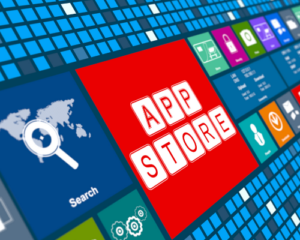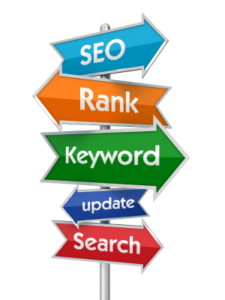Your digital transformation partners!
Get In Touch
+91 9225117897
info@goodmansvision.com
Savarkar Nagar, Nashik, Maharashtra, India
Decoding the App Dilemma: PWAs vs. Native Apps - Which is Right for You?
User Experience

PWAs:
Progressive Web Apps offer a seamless user experience across different devices and platforms. Leveraging cutting-edge web technologies, PWAs deliver lightning-fast loading speeds, fluid navigation, and responsive interfaces, mirroring the feel of native apps.
Native Apps:
Native Apps are built specifically for a particular platform or device, utilizing its native programming language and capabilities to provide tailor-made experiences. They often provide a more polished and tailored experience, taking full advantage of the platform’s features.
Development Cost & Time

PWAs:
The development of PWAs requires a unified codebase, making it cost-effective compared to developing separate apps for multiple platforms. With a single codebase, developers can save time and effort by avoiding the need to create and maintain platform-specific versions of the app. Updates and maintenance are also simplified since changes are applied universally, reducing time-to-market for new features.
Native Apps:
Building native apps for different platforms (iOS, Android, etc.) requires individual development efforts and ongoing maintenance. Each platform has its own programming languages, frameworks, and design guidelines, which can increase the development complexity and time required. While the platform-specific approach allows for fine-tuning and optimizing the user experience for each platform, this can result in higher costs and longer development cycles.
App Store Distribution

PWAs:
Progressive Web Apps do not require app store distribution. Users can access them directly through web browsers, eliminating the need for app installations and the associated app store submission processes. This widens the reach and simplifies the user acquisition process. For example: By eliminating the barriers of app store downloads, a PWA for a news aggregator can instantly capture the attention of users through a simple URL.
Native Apps:
Native apps rely on app stores as distribution platforms, which can enhance app discoverability and user trust. App store presence can augment marketing efforts and leverage the app store ecosystem for increased visibility. However, it’s important to consider app store guidelines, approval processes, and revenue sharing models when opting for native app distribution.
Reach & Discoverability

PWAs:
Progressive Web Apps are easily discoverable through search engines, as they are treated as websites. They can be indexed by search engines and appear in search results, providing a broader reach for the app. Additionally, PWAs are shareable via URLs, making it easy for users to share the app with others. This benefits businesses in terms of search engine optimization (SEO) and simplifies marketing efforts.
Native Apps:
Native apps rely on users finding and downloading them from app stores. This may require additional marketing efforts to drive app installations and user acquisition. While app stores provide a platform for app discovery, it’s important to consider the competitive landscape and invest in effective marketing strategies to ensure the app gets noticed by the target audience.
Offline Access

PWAs:
PWAs can leverage Service Workers, a technology that allows them to cache data and enable offline access to content and essential functionality. This means that even without an active internet connection, users can still access certain features and content, providing a basic level of functionality offline.
Native Apps:
Native Apps, being platform-specific, can utilize local storage, databases, and device-specific features to provide a seamless offline experience. Native apps can offer advanced offline capabilities, such as offline synchronization, background data updates, and full functionality without internet connectivity.
Integration with Device Features

PWAs:
PWAs have limited access to device features and APIs compared to native apps. While they can utilize functionalities like geolocation and camera access, some advanced features like biometric authentication or deep hardware integration may be limited or unavailable.
Native Apps:
Native apps have extensive access to device features and can seamlessly integrate with functionalities like fingerprint scanning, camera, NFC, Bluetooth, accelerometer, and other hardware-specific features. This enables developers to create highly immersive and feature-rich experiences tailored to the capabilities of each platform.
Performance & Speed

PWAs:
PWAs are designed to deliver fast loading times and smooth performance. They leverage techniques like service workers, caching, and optimized resource loading to ensure efficient performance even on slower connections. However, for highly resource-intensive tasks, native apps may have an advantage due to their direct access to device hardware and optimized coding.
Native Apps:
Native apps are developed specifically for a particular platform, allowing developers to utilize the platform’s native programming language and capabilities. This can result in faster and more responsive experiences, especially for tasks that heavily rely on device resources.
Time-To-Market

PWAs:
PWAs offer a quicker time-to-market advantage since they can be released and updated directly on the web without the need for app store approval processes. This allows for more rapid iterations and deployment of new features and improvements.
Native Apps:
Developing and releasing native apps for different platforms involves complying with app store submission guidelines, review processes, and approval timelines. This can result in longer time-to-market, especially when updates or new releases require multiple platform-specific iterations.
App Monetization

PWAs:
PWAs are catching up in terms of monetization options. They can incorporate various revenue streams, such as advertising, subscriptions, and e-commerce integrations. However, the available monetization strategies may be more limited compared to the mature ecosystem of native app monetization.
Native Apps:
Native apps offer a wide range of monetization options, including in-app purchases, subscriptions, advertising networks, and partnerships. The established app store ecosystems provide developers with robust tools and frameworks for implementing and managing monetization models.
Long-Term Maintenance

PWAs:
PWAs have a unified codebase, making updates and maintenance more streamlined. Changes can be applied universally, reducing the effort and time required for maintenance tasks. This allows for quicker deployment of bug fixes, feature updates, and improvements.
Native Apps:
Native apps require individual updates for each platform, as they are built using platform-specific languages and frameworks. This can increase maintenance efforts, especially when changes need to be synchronized across different platforms. However, platform-specific updates can also ensure optimal performance and user experience on each platform.
Conclusion
Choosing the right app solution depends on several factors, including user experience requirements, development costs, distribution strategies, offline capabilities, and business goals. While Progressive Web Apps (PWAs) offer cross-platform compatibility, cost-effectiveness, and seamless web experiences, Native Apps excel in device-specific features and polished user experiences. Businesses must evaluate their specific needs and consider the trade-offs to make an informed decision.
Remember, each approach has its unique strengths, and the ideal choice depends on your business’s specific context and goals. At Goodmans Vision, we possess the expertise in Progressive Web App Development, Mobile App Development, and various other software engineering solutions. We will guide you through the decision-making process ensuring that you stay at the forefront of the digital realm by harnessing the power of the right app solution tailored to your needs.

Small Business Grow faster With Our Consulting Services

Subscribe
Join us! Our Newsletter will keep you updated!

